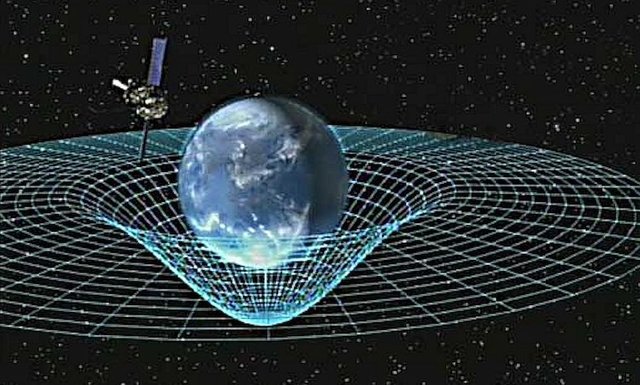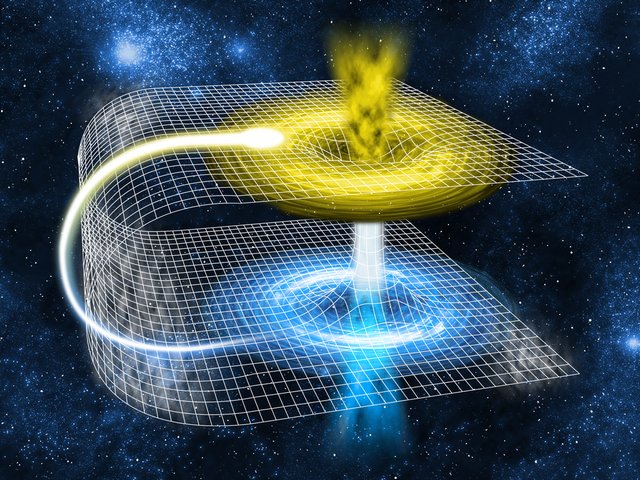TIME TRAVEL MIGHT BE A ONE WAY TICKET!

The capacity to travel through time has long been welcomed by science fiction and disputed by theoretical physicists, whether it is to correct a mistake in the past or gain insight into the future. While the discussion over whether or not it is conceivable to travel into the past continues, scientists have decided that travelling into the future is most certainly possible. You don't even need a wormhole or a DeLorean to accomplish this.
Time dilation, a characteristic of Einstein's special relativity, is used in real-life time travel. Einstein was the first to recognise that, contrary to popular belief, time does not remain constant as you move faster across space.
Einstein reimagined space itself as part of his theory. He coined the term "spacetime," which combines the three dimensions of space and the one dimension of time into one concept. Instead of thinking of space as a flat and inflexible area that retains all of the objects in the universe, Einstein saw it as curved and flexible, capable of forming gravitational dips around masses that pull other items in, similar to how a bowling ball in the centre of a trampoline causes any smaller object on the trampoline to slide towards the centre.

Einstein's curved spacetime as a computer-generated image. The Earth causes a gravitational dip in spacetime's fabric that is deepest at its centre.
The closer an object approaches the dip's centre, the faster it accelerates. The gravitational dip's centre is found at the Earth's core, where gravitational acceleration is greatest. Because time slows down as you move faster through space, according to Einstein's theory, the closer an object is to the Earth's centre, the slower time travels for that thing.
GPS satellites, which orbit 20,200 kilometres above the Earth's surface, exhibit this effect. Due to time dilation, these satellites have incredibly precise clocks onboard that gain an average of 38 microseconds every day. While the time advantage may appear tiny, GPS satellites rely on their inbuilt clocks to keep their worldwide positioning exact. Running at 38 microseconds per second would result in a location mistake of roughly 10 kilometres, which would grow everyday if the timing difference was not adjusted on a regular basis.

The film Interstellar explained the concept of time dilation in a very apt manner. Let’s get back to time travel before this quickly becomes a film review..lol
In the movie Interstellar, Matthew McConaughey and his crew land on a planet with an intense gravitational field created by a nearby black hole, which causes time dilation. Time slows drastically for the crew on the planet due to the black hole's immense gravitational effect, making one hour on the surface comparable to seven years on Earth. This explains why Matthew McConaughey's daughter is an elderly woman when the team returns to Earth, yet he looks to be the same age as when he departed.
So, why hasn't humankind been able to make such significant jumps forward in time? This question has a simple answer: velocity. To send a traveller years into the future, humankind would have to either use the extreme gravitational acceleration induced by black holes or send the traveller rocketing into space at close to the speed of light (approximately 1 billion km/h). With our existing technology, people can only jump a few microseconds into the future.
But, if one day, technology permits us to send a human into the future by travelling at near-light speed, would the traveller be able to employ time dilation to return to the past and report her findings? “Interstellar travel at near to the speed of light may be possible,” says Dr. Jaymie Matthews, an astrophysics professor at the University of British Columbia. “However, this voyage is only one way — into the future, not back in time.”
Is it true that we will never be able to return to the past since we can't use time dilation? Possibly not. Einstein postulated that a sort of wormhole called an Einstein-Rosen bridge may be used to travel back in time. Wormholes are hypothetical portions of spacetime that are distorted in such a way that they connect two places in space.

Representation of wormhole in 3d space
If this bridge in space was stable enough, Einstein's calculations showed that it could theoretically connect two places in time instead. “Right now, even an Einstein-Rosen bridge can't be utilised to travel back in time because it doesn't live long enough — it's not stable,” Matthews argues.
“Even if it were stable, it would necessitate other physics, which we lack. Hypothetical particles and states of matter with "abnormal" physical features, such as a particle with a negative mass, that would defy established physical principles. That's why "wormholes" only exist in science fiction."
While it would be fascinating to travel back in time to see dinosaurs or to meet Albert Einstein and demonstrate the fact of time travel to him, it may be best if the past is left alone. Traveling to the past opens the door of making a change that could harm the future. In Back to the Future, for example, Marty McFly travels to the past and accidentally prevents his parents from meeting, almost preventing his own existence. But how could he have travelled back in time in the first place if he had undone his own existence?
Marty's exploits are based on a variant of the grandfather paradox: what happens if you kill your grandfather before your father is born? If you're successful, how did you come to be alive in the first place to murder your grandfather?
A recent study from the University of Queensland may hold the key to solving this perplexing puzzle. The researchers show that paradox-free time travel is achievable in this work, demonstrating that the cosmos will self-correct to prevent paradoxes. If this is true, we would never be able to change events in the past to create a new future, even if we could travel back in time.
While these new discoveries are fascinating, there appears to be further evidence that, while time dilation allows us to see into the future, we will never be able to travel back in time. “The clearest evidence we have that time travel [to the past] is not conceivable, and never will be, is that we have not been invaded by hordes of visitors from the future,” said the late Stephen Hawking in his book Black Holes and Baby Universes.
REFERENCES:
https://phys.org/news/2020-05-future-totally.html https://www.bbc.com/news/science-environment-44771942DONT FORGET TO UPVOTE, REPOST AND SUBSCRIBE TO MY PAGE FOR SIMILAR CONTENT! KEEP STEEMING!
Nice to read your post .
You have added correct information source of your post .
Keep posting and stay with our community .
Thank you